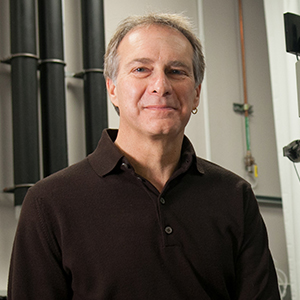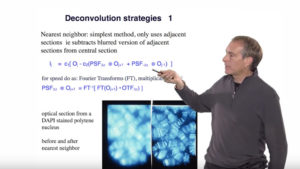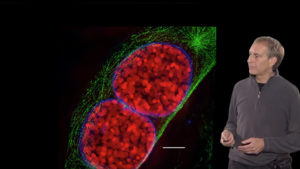David Agard is Professor of Biochemistry and Biophysics at the University of California, San Francisco, an Investigator of the Howard Hughes Medical Institute and a member of the National Academy of Sciences. Agard’s lab studies the relationship between the structure and the function of macro and supramolecular complexes such as centrosomes, chromosomes, and HSP 90. To facilitate these studies, Agard’s lab has developed a number of innovative microscopy techniques.
David Agard
University of California, San Francisco; Howard Hughes Medical Institute
National Academy of Sciences






